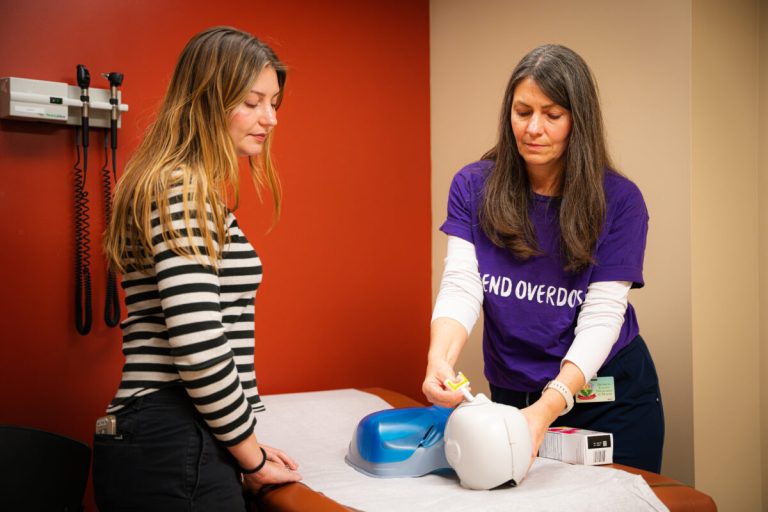Reviewed by: Cindy Hatcher
How Alabama kids with diabetes make healthy + fun recipes
Reading time: 4 minutes
Sponsored

When Nakeishia Benson’s son, Antonio, was six, he started getting unusually sleepy and sick. Thinking it was COVID-19, she took Antonio to the hospital to find he had extremely high blood sugar and was diagnosed with type 1 diabetes shortly after.
It was a stressful time for the Benson family, but during our conversation with Nakeishia, she said over and over again that she couldn’t have made it through without help from the doctors and nurses at Children’s of Alabama.
Even now, as a thriving 10-year-old, Antonio still has struggles with his diabetes. But there’s something right here in Birmingham that makes navigating his diagnosis a little easier. Check out this resource that’s helping Antonio and kids like him find food that works for their diet and helps grow their independence.
Kids with diabetes learn to make food compatible with their diet
As a unique resource for kids with diabetes right here in Birmingham, there’s a thing called The Charlie Cart. It comes around once a month at Children’s of Alabama’s High-Risk Diabetes Clinic and serves as an opportunity for children to learn more about the foods that they’re eating.
To learn a little more about the Charlie Cart and how it helps kids with diabetes, we talked to a registered dietitian at Children’s: Mary Elaine Bridges.

For the past year and a half, Mary Elaine has worked in the endocrinology clinic where she:
- Counsels patients
- Provides education for recommended diets for diagnoses
- Teaches a post-hospital diabetes course
- Leads the PCOS + Charlie Cart Clinics
What is the Charlie Cart?


Mary Elaine Bridges performs a cooking demo and has the kids practice reading and creating recipes. The key to a Charlie Cart demonstration is to pick a healthy snack—ideally affordable and easy for kids to remake themselves.
“The parents like the idea of their child learning how to be in the kitchen, make snacks for themselves and be independent. Plus, the parents can take these recipes and recreate them at home.”
Mary Elaine Bridges, registered dietitian, Children’s of Alabama
Last month, the kids learned to make “spooky” snacks just in time for Halloween:
- Ghosts: Half-cut bananas with chocolate chip eyes
- Witches’ broomsticks: Pretzel sticks with string cheese
- Pumpkins: Tangerines with a celery stem
- Mummies: Babybell cheese wheels with chocolate chip eyes
The Charlie Cart makes a huge difference for Antonio + his family

While his diagnosis was nearly four years ago, Antonio still faces challenges every day—the same for every other kid with type 1 or type 2 diabetes.
But with hands-on resources and educational opportunities, families across Alabama can get by a little easier.
“The social workers, child life therapists, nutritionists, everyone—anytime I call, someone is going to call me back. Even if I feel like everything is falling apart, someone’s going to help.”
Nakeishia Benson
November is Diabetes Awareness Month

In addition to the Charlie Cart, Children’s offers other educational resources such as:
- A summer camp for kids with diabetes
- Post-hospital diabetes courses
- One-on-one sessions with diabetes educators + dieticians
“The most important part of the collaboration in the endocrinology clinic is getting patients and their families involved in their own care. When they’re engaged, they’re able to learn practical tools that they can use at home.”
Mary Elaine Bridges, registered dietitian, Children’s of Alabama
The diabetes program at Children’s of Alabama is one of the largest in the country, serving more than 2,600 children.
“I love making the learning process easy for them. That’s my favorite part: Seeing the children in the kitchen and using food to create things they love.”
Mary Elaine Bridges, registered dietitian, Children’s of Alabama
See more about this one-of-a-kind resource + other ways Children’s of Alabama helps Birmingham.
Sponsored by:




